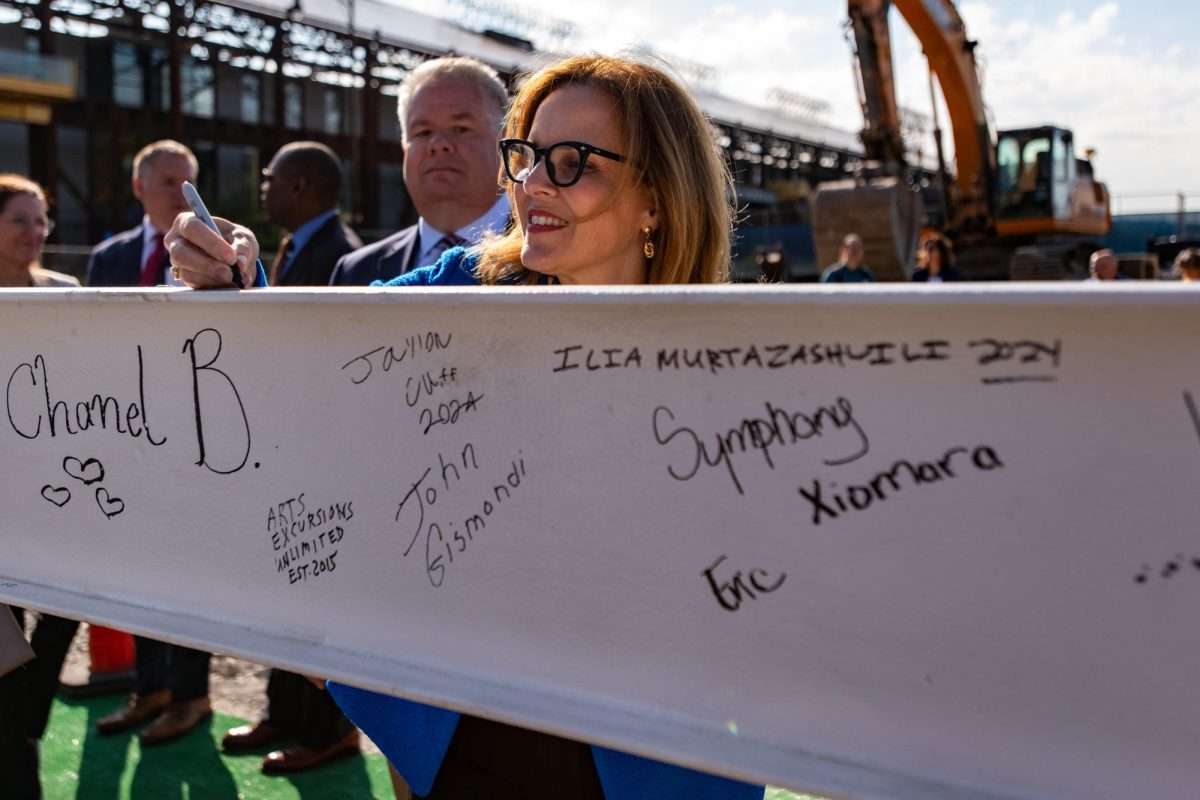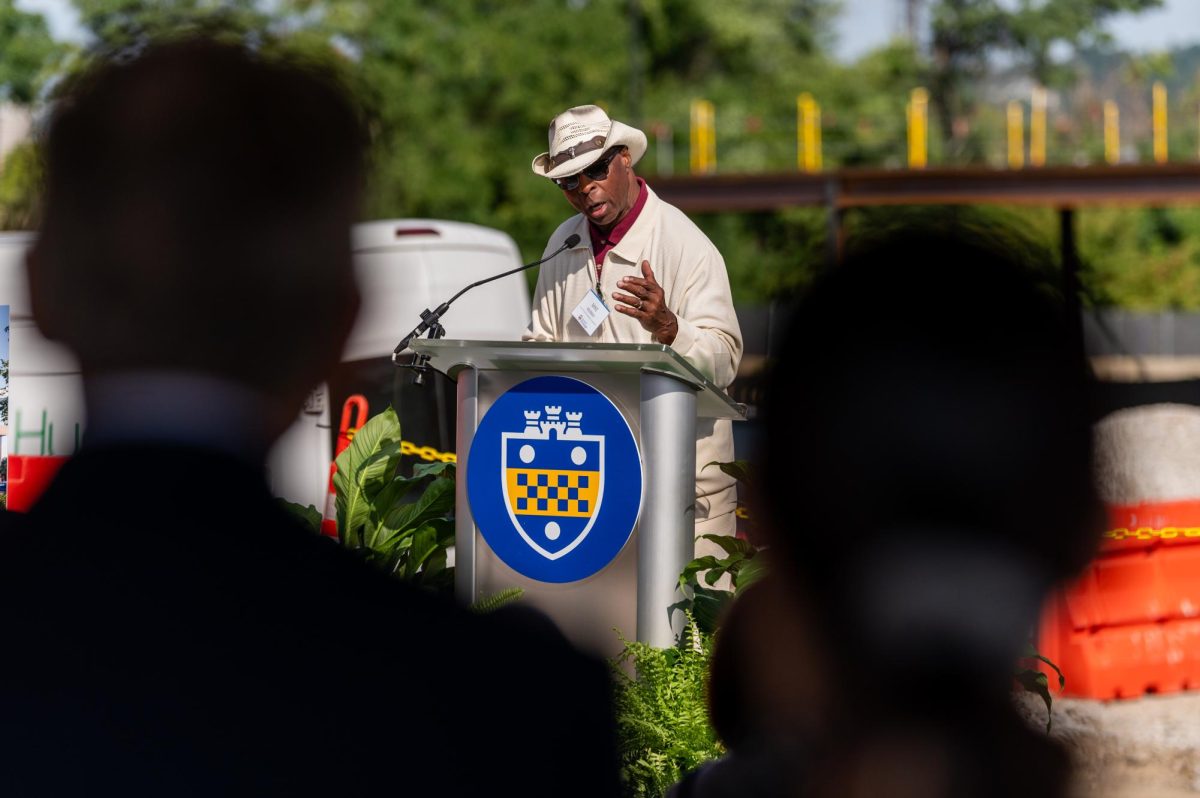Friday marked a milestone in construction for Pitt’s BioForge.
All those who contributed to the BioForge project — including leaders at Pitt, the construction team, architects and representatives from the Richard King Mellon Foundation and ElevateBio — gathered at the construction site for a “topping off” ceremony on Sept. 6 and signed the final beam. After remarks from leaders, including Chancellor Joan Gabel and BioForge CEO Ken Gabriel, the last beam was added to the building, completing the internal structure and marking a new stage of construction.
Initially approved for construction by Pitt’s Board of Trustees in June 2023, BioForge is a 185,000 square-foot biomanufacturing facility located on Hazelwood Green, the site of Pittsburgh’s last steel mill. The project is funded in part by a $100 million grant from the Richard King Mellon Foundation, the single largest in the foundation’s history.
ElevateBio will serve as a partner and anchor institution, using 75% of the building for gene and cell therapy manufacturing while the other 25% will be used by Pitt. BioForge is intended to explore gene and cell therapies as treatment for conditions such as cancer, blindness and degenerative neural diseases, potentially reducing the costs of such treatments.
Exterior construction is scheduled to finish in the first half of 2025, and the project is expected to be complete by summer 2026.
“The scaffolding is up and nearly complete,” Gabriel said. “One more beam to go, and before we know it, the BioForge building that we’re topping out today, though only a few stories high, will begin contributing to countless news stories — stories of restored lives, stories of revitalized communities and stories of a resurgent region.”
BioForge is expected to create 900 construction jobs and 360 off-site support jobs. Additionally, it’s estimated to create 170 full-time jobs, about half of which will be available to those with community college degrees or trade school experience.
Gabriel said that BioForge and its partners are committed “to make the promise and potential of precision by biological medicine not only real, but equitable.”
Gabel made remarks to begin the event, describing the BioForge project as “one of the main reasons that I am here in this role [as chancellor].”
“It’s a new type of economic engine found at the intersection of cutting-edge biomedical research that Pitt is known for,” Gabel said.
She acknowledged the site’s past as a steel mill and its significance as the BioForge project moves forward.
“The fact that we’re gathered here in this neighborhood, which was the epicenter of the American century, and now is the center of the next American century, the life sciences century — it’s an incredibly exciting time,” Gabel said.
Dr. Anantha Shekhar, senior vice chancellor for the health sciences and the John and Gertrude Petersen dean of the School of Medicine, said BioForge will be “a community asset for a wonderful community of Hazelwood that has been known for creating the product of Pittsburgh steel for decades.”
“This is a journey that has taken us from that one day of imagining possibilities to actually having this facility that is going to, I believe, both change the way we look at biological therapeutics as a field that is going to have a global impact, also a change that we’re going to see for Pitt and Pittsburgh as a way to completely move from the original fame of steel manufacturing to the next fame of biomanufacturing,” Shekhar said.
Reverend Michael Murray Sr., the son of a steelworker, collaborated with Pitt on this project as chairman of the Hazelwood Greater Community Collaborative.
“This event holds a very special and significant place for me and my life as it takes place in the neighborhood where my father has lived and his family for the past 70 years,” Murray said.
He said BioForge and its initiatives “align beautifully with part of the Greater Hazelwood Plan,” seeing as it creates opportunities for employment.
“We don’t believe it’s a plan, but a vision. None other like it has been designed, and we want you to see all the hard work and labor that went into creating that plan,” Murray said.
Murray said the Greater Hazelwood Community Collaborative serves to create ties between the community and BioForge through their workforce development committee.
“As we succeed in partnership, it is our quest to make sure we work together so that we can make sure that the opportunities for the residents in this community are available,” Murray said. “We are unlocking doors to future opportunities [and] emphasizing the vital role that innovation, education and partnership plays in our collective success.”



